Dear Tenant, we hope this message finds you well! As part of our ongoing commitment to maintaining the beauty of our shared spaces, we wanted to inform you about upcoming garden maintenance in your area. This essential work not only enhances the aesthetic appeal of our surroundings but also promotes a healthier environment for everyone. We invite you to read further for details on the schedule and how you can contribute to keeping our garden lovely!
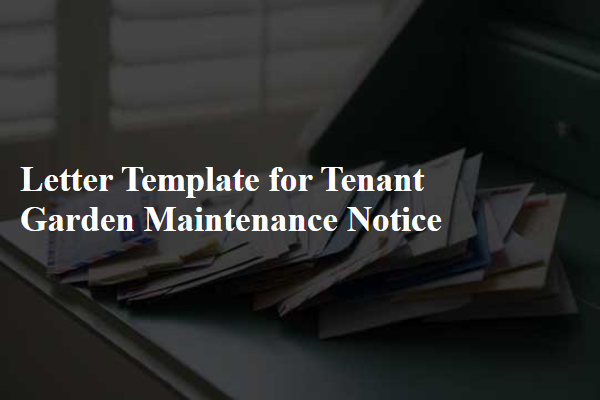
Clear subject line
Garden Maintenance Notice for Tenants Notice: Upcoming Garden Maintenance Scheduled Dear Tenants, We would like to inform you about scheduled garden maintenance taking place on [specific date], starting at [specific time], in the garden area of [property name or address]. This maintenance will include tasks such as lawn mowing, hedge trimming, and weed removal to enhance the overall aesthetics and health of the garden. Please ensure any personal items are removed from common areas prior to maintenance. Thank you for your cooperation. Best regards, [Your Name/Property Management]
Address and tenant details
Tenant garden maintenance notices are essential for keeping outdoor spaces healthy and well-maintaned. A notice typically includes the property's address, like 123 Greenfield Lane, along with tenant details such as the name, phone number, and email address. It is also crucial to specify the date and time of scheduled maintenance, often conducted every month, to ensure tenants are prepared. Maintenance activities may involve lawn mowing, pruning shrubs, or fertilizing plants, contributing to the overall attractiveness and functionality of the shared environment. Clear communication regarding these details helps tenants understand their responsibilities and the property's upkeep, fostering a harmonious living environment.
Explanation of garden maintenance requirements
Garden maintenance is essential for keeping rental properties, such as residential apartments or houses, visually appealing. Regular tasks include mowing lawns (typically every 1-2 weeks during the growing season), trimming hedges (at least quarterly), and weeding flower beds (weekly). Seasonal tasks may involve mulching (to retain moisture and suppress weeds) and planting seasonal flowers (spring annuals or fall perennials for seasonal interest). Proper irrigation (ensuring plants receive adequate water without overwatering) promotes healthy growth, ideally using drip systems or sprinklers. Raking leaves in the fall prevents lawn damage while maintaining cleanliness. Additionally, pest control measures (integrated pest management techniques) help protect ornamental plants without harming the ecosystem. Regular inspections (quarterly assessments) can identify issues before they escalate and ensure that the garden thrives.
Scheduled maintenance dates
Scheduled garden maintenance involves routine upkeep to ensure healthy and aesthetically pleasing outdoor spaces. Maintenance dates typically occur on weekdays, such as every second Tuesday of the month, starting from May (with an emphasis on spring growth and preparation). Professional landscapers will conduct tasks including lawn mowing, hedge trimming, and weed removal, utilizing equipment like gas-powered mowers and electric hedge cutters to achieve optimal results. All tenants should be aware that specific days may require temporary access restrictions, particularly in communal gardens, such as the one located at Oakwood Apartments, enhancing both safety and efficiency of the work performed. Notifications will be provided ahead of time, ensuring tenants can plan accordingly.
Contact information for inquiries
In rental properties, maintaining a garden contributes significantly to the overall aesthetics and livability of the space. Regular garden maintenance, particularly the upkeep of lawns, flower beds, and shrubs, often requires attention to seasonal changes. For instance, springtime involves planting new flowers, while autumn emphasizes leaf removal. Property owners may schedule professionals or arrange for specific days for tenants to engage in these tasks, promoting community involvement. For inquiries regarding maintenance activities, tenants should reach out to designated contact numbers or emails provided by property management, ensuring effective communication channels for any garden-related concerns.

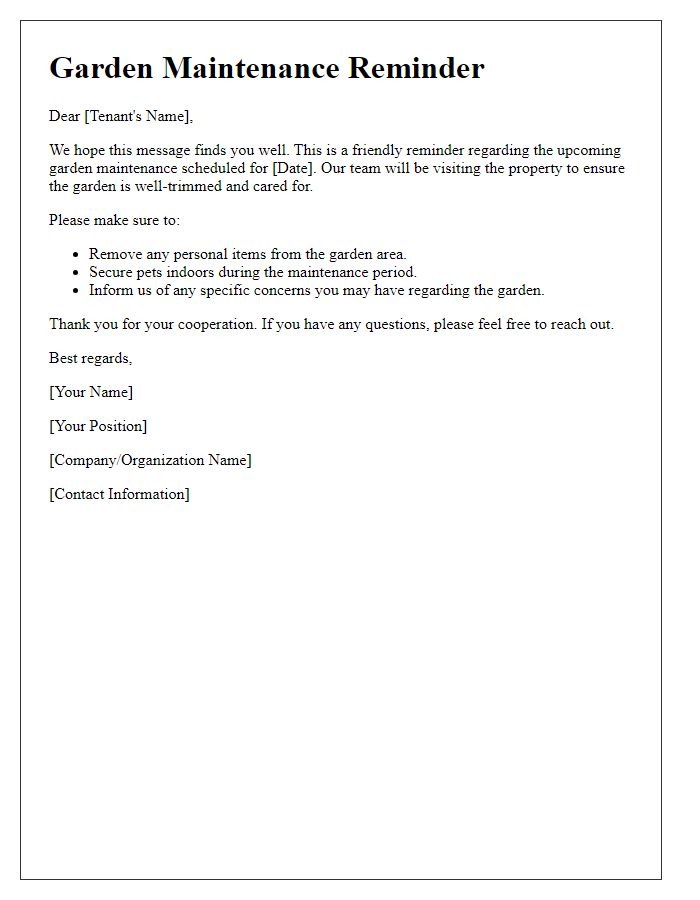
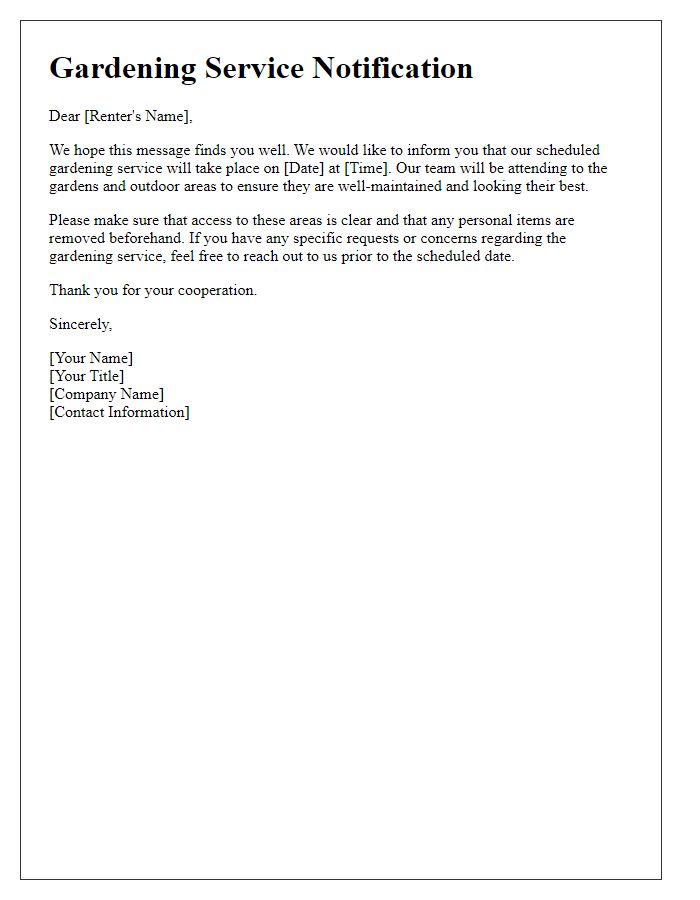
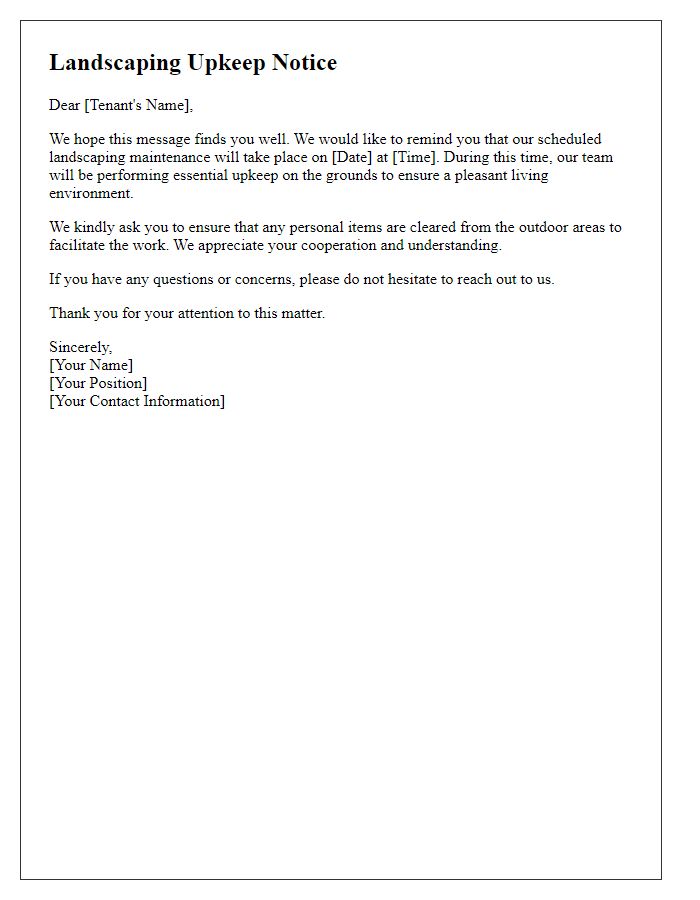
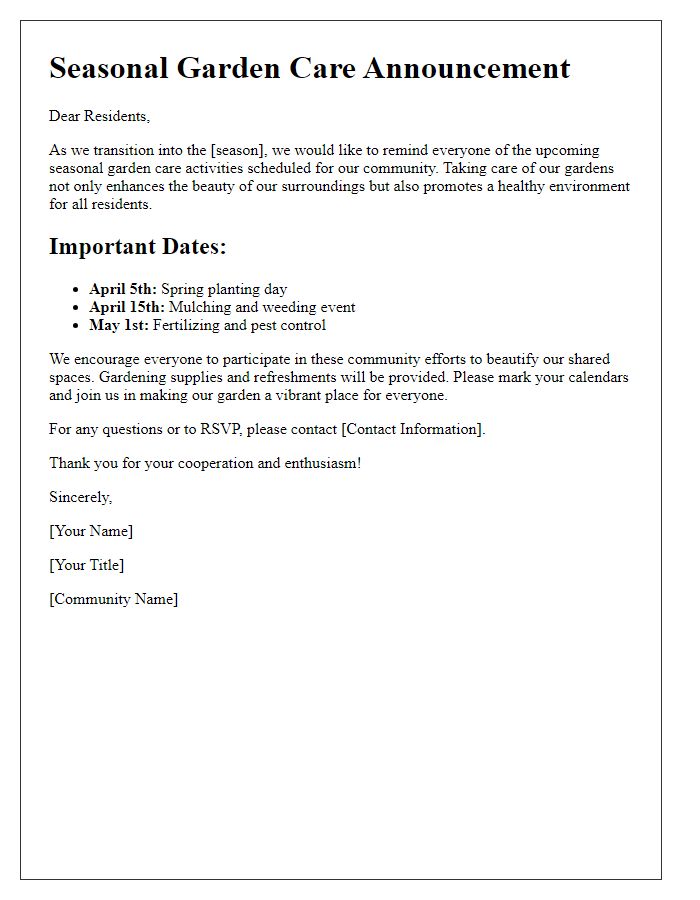
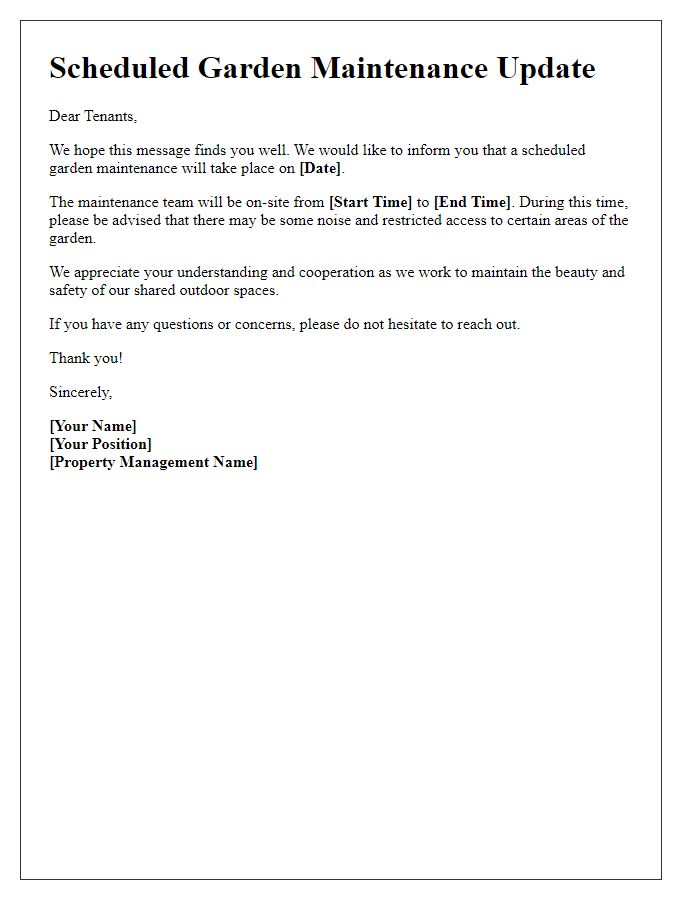
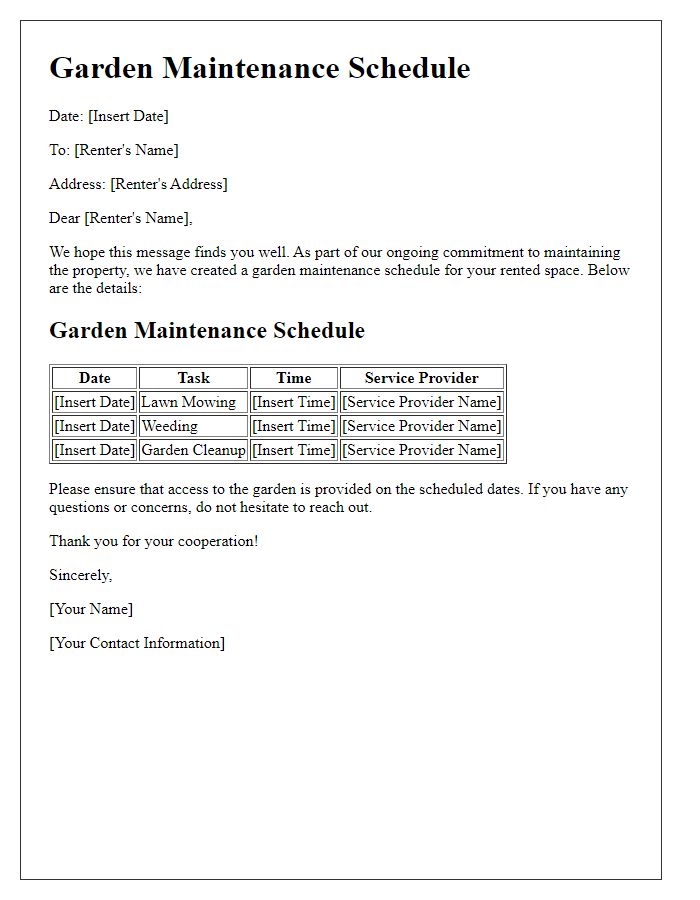
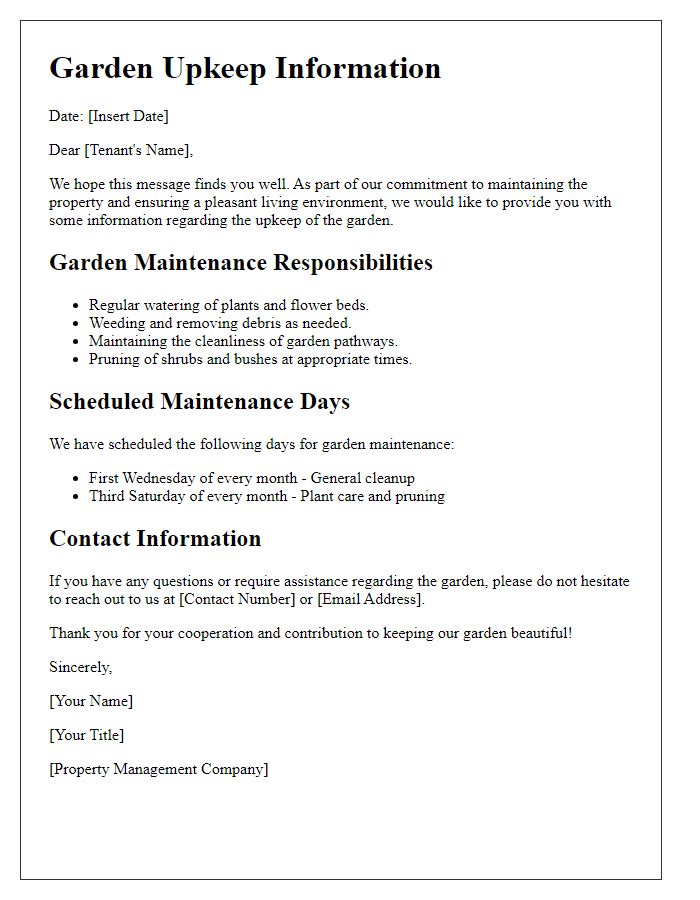
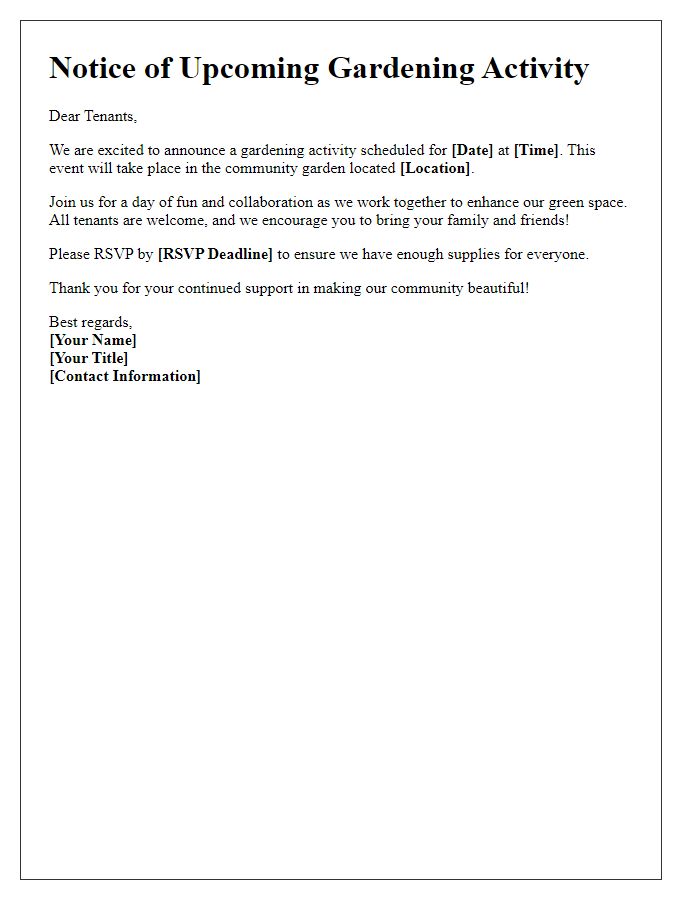
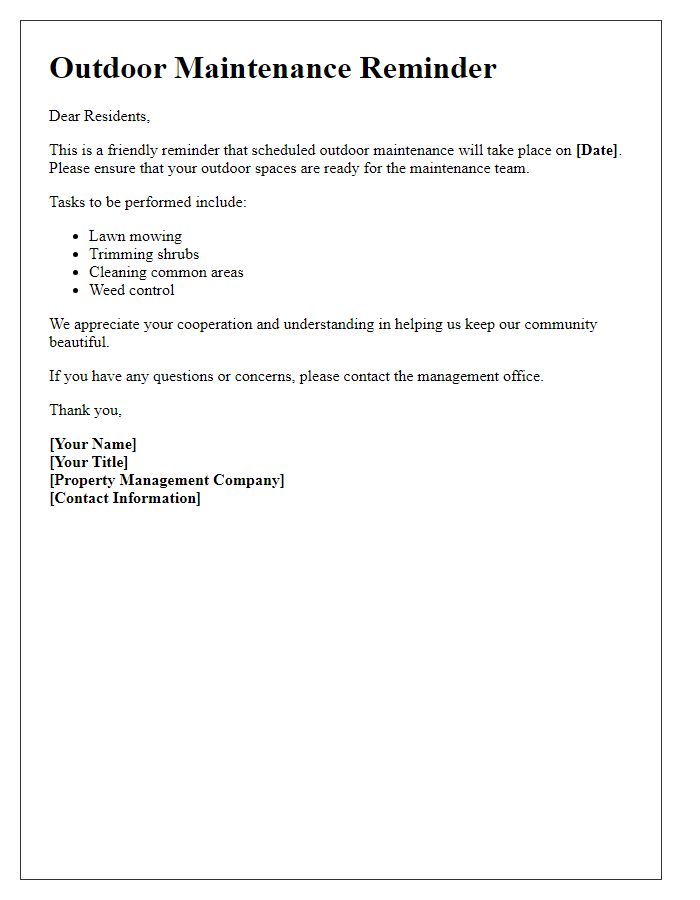
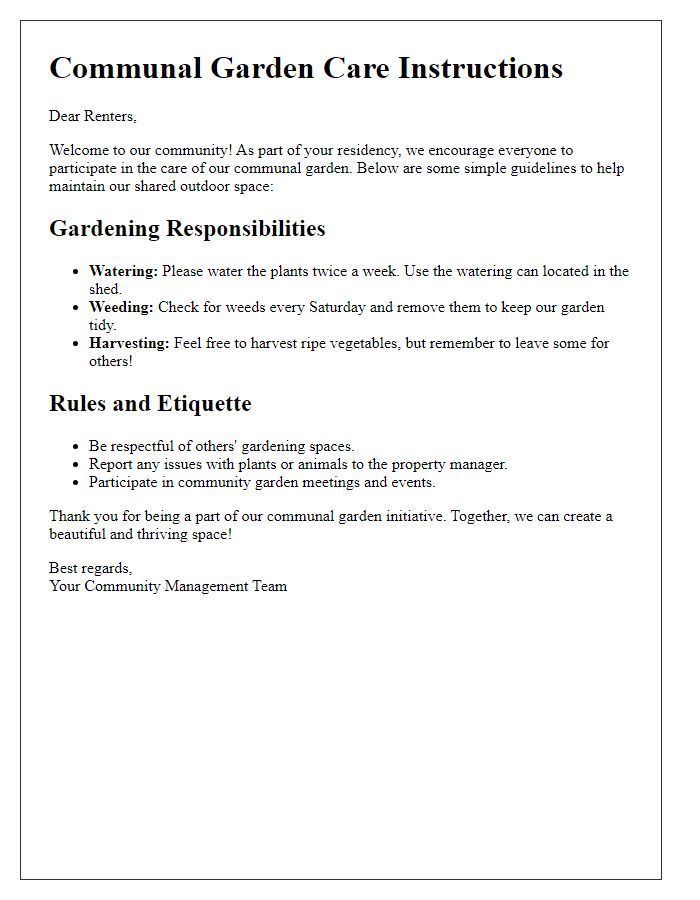

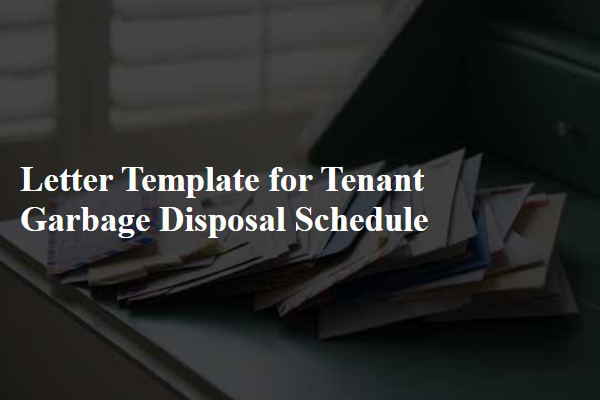
Comments